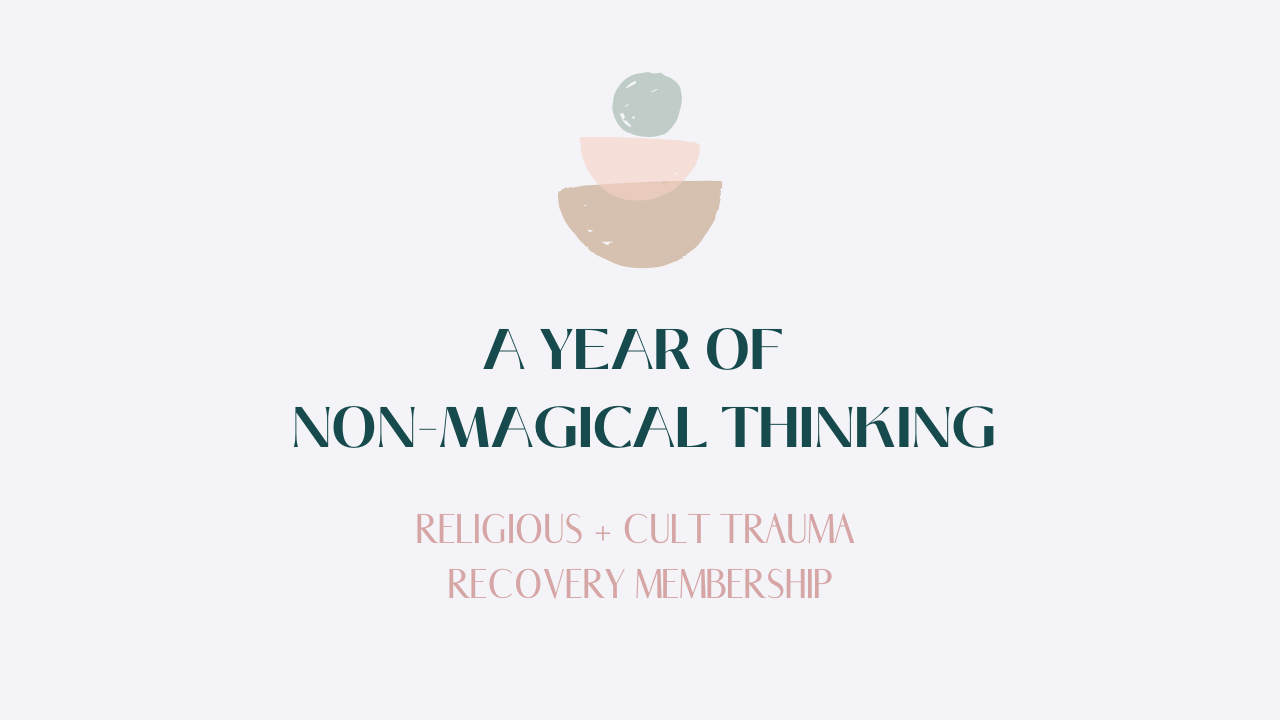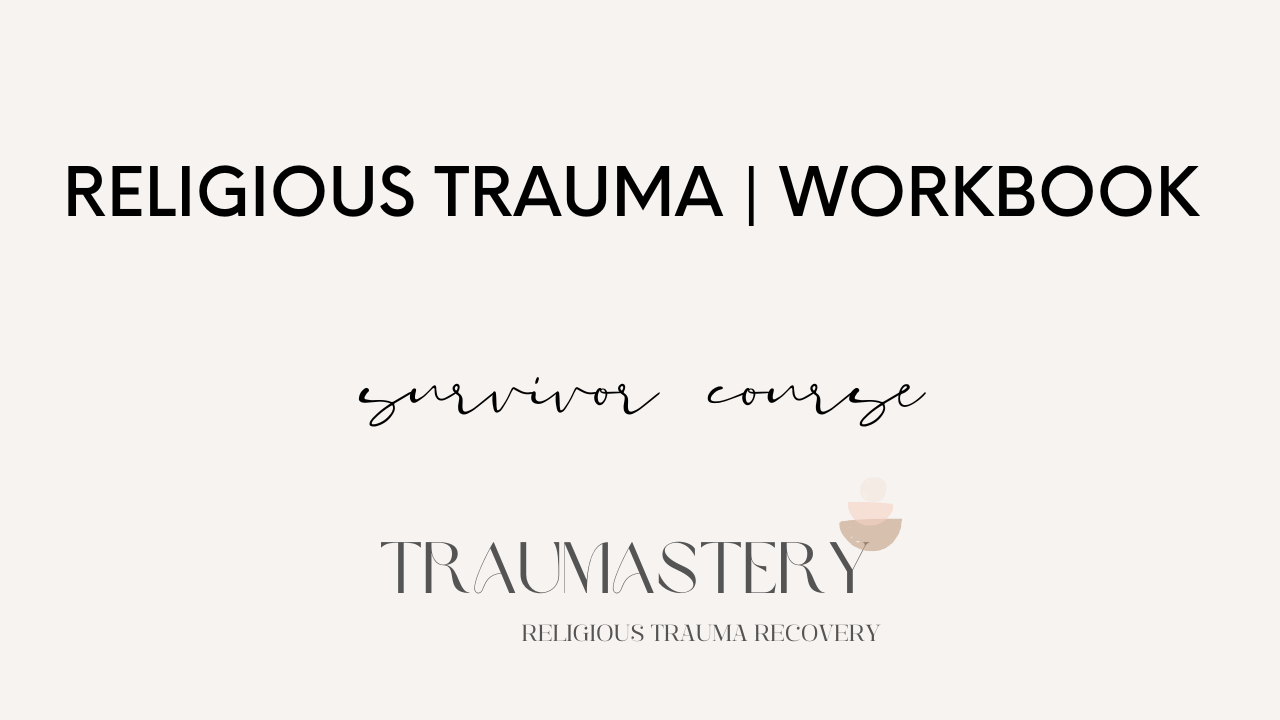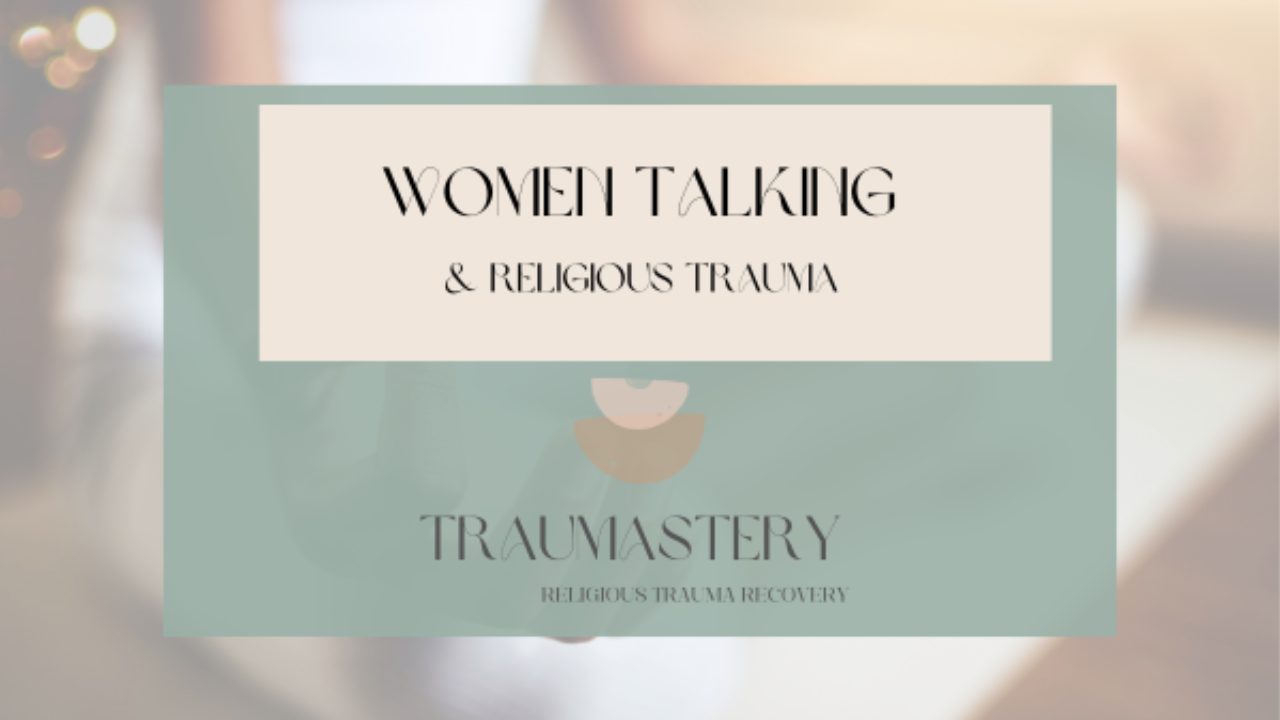Religious Trauma Syndrome
What happens in the aftermath of religious trauma or cult abuse?
What is Religious Trauma Syndrome (RTS)?
The term Religious Trauma Syndrome was originally created by psychologist, Marlene Winell. She described a set of symptoms that happened when someone was leaving dogmatic, rigid, demanding, and fundamentalists religions. RTS describes a wide range of symptoms, including cognitive, emotional, social, and functional outcomes after leaving controlling religious environments.
Religious Trauma Syndrome has two essential parts. The first part of the trauma response occurs due to the chronic abuse and mistreatment during the overwhelming indoctrination into a dogmatic or fundamentalist religion. The second part of the traumatic experience begins when trying to leave that religion.

Religious trauma is more common than we think.
Religious Trauma Syndrome Symptoms:
The symptoms of RTS fall into several important categories.
Affective/Emotional:
Folks with RTS might experience generalized anxiety, OCD, panic attacks, depression, anger, grief, guilt, and shame. The emotional aftermath of living in a controlling or fundamentalist religion is far reaching and many report ongoing symptoms even after they have left the group.
Cultural/Social:
Most cult or fundamentalist groups threaten those that leave. Those that leave are typically separated from their families and shunned by their close support network. Many with RTS are struggling with the impact of feeling socially isolated and rejected for their decision to leave the unhealthy religious environment.
Cognitive:
The are many ways in which the brain is trying to make sense of a really upsetting experience. Those with RTS might feel confused, easily overwhelmed, dissociative, or numb. They might struggle with their identity, decision-making, or feeling stable in their self of self-worth.
Functional:
Those with RTS might struggle to function or live as they would like. They might feel physical symptoms in lieu of their mental symptoms, or experience terrifying nightmares and flashbacks. We also see those struggling with RTS having issues with substance abuse, addiction, pain disorders, and eating disorders.
Developmental:
Unfortunately, rigid religious environments can cause delayed emotional development across sexual, emotional, or identity development. When someone is oppressed or repressed while in their groups, they might struggle with immaturity when it comes to relating to others, themselves, or making healthy decisions for themselves without the staunch rules to keep them in line.
Now what?
Do these symptoms resonate with you?
Take our Religious Trauma Quiz
See if your experiences match up with religious trauma. Our quiz is free and quick with immediate results.
Take Our Quiz
Maybe you're ready to jump into learning...
Here are a few of our resources aimed at helping your religious trauma recovery. Led and taught by a psychologist specializing in religious and cult trauma.

Religious + Cult Trauma Membership
Learn how religious trauma impacts your mental health from a psychologist that specializes in cult and religious trauma recovery.

De-Glorifying Suffering Workbook
Download our 10-week workbook and get a self-guided tool to help you understand your religious trauma and begin your recovery.
Ready for more resources?
Dive into our blog for free resources, downloadables, and helpful skills.




